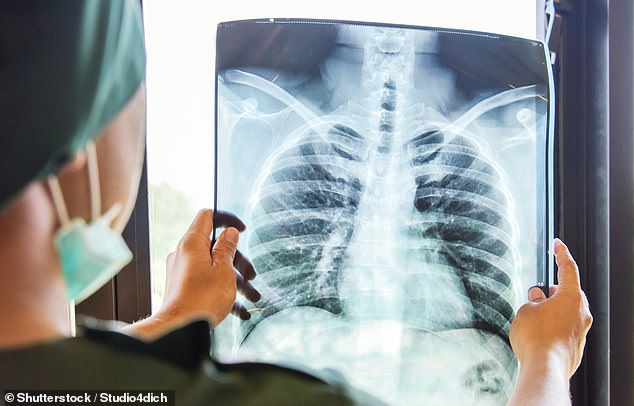A simple thumb check could prevent thousands of strokes every year.
The test, which involves measuring electrical activity from the heart as it passes through the thumb, picks up signs of atrial fibrillation (AF), a leading cause of strokes that affects 1.4 million Britons.
AF occurs when the heart’s electrical signals go haywire. It affects older adults, although athletes can develop it too.

A simple thumb check could prevent thousands of strokes every year. The test, which involves measuring electrical activity from the heart as it passes through the thumb, picks up signs of atrial fibrillation, a leading cause of strokes that affects 1.4 million Britons. (Posed by model)
The heart rate becomes erratic and clots can form and travel to the tiny blood vessels in the brain, triggering a stroke.
The NHS does not screen for AF, although it can be treated with drugs.
A new study of 28,000 people in their 70s by Sweden’s Karolinska Institute found that regular screening with a thumb check cut brain clots by about two per cent – equivalent to 2,000 strokes a year in the UK – by detecting AF.
Lung patients can’t warm to the heatwave
This week’s mini-heatwave will be the bane of Britain’s more than three million sufferers of chronic lung disease, according to a study.
It shows that people with chronic obstructive pulmonary disease (COPD) – lung conditions such as emphysema and bronchitis – are more likely to experience flare-ups in the days after the temperature rises.
Scientists at the University of Washington in Seattle, who analysed data from 1,000 patients, discovered that on average, for every degree Celsius the temperature rose, COPD flare-ups became two per cent more likely over the following days.

This week’s mini-heatwave will be the bane of Britain’s more than three million sufferers of chronic lung disease, according to a study. (File image)
Some 30,000 people in the UK with severe kidney disease need regular dialysis, hooked up to a machine that filters waste products and excess fluid from the blood when the kidneys cannot cope.
And it can be mentally and physically gruelling, with three-hour sessions up to five times a week.
Now a first-of-its-kind scheme could make the experience easier. The National Kidney Federation initiative allows dialysis patients to connect and share treatment experiences.
Patients contact the charity to request a support partner. They are matched with someone of the same age who shares similar life experiences.
The charity hopes the partner scheme will reduce the mental burden of dialysis.
One in five Britons are still unsure who is eligible for a flu vaccine when doctors start dishing out jabs in the next few months, a poll shows.
More than 35 million people are entitled to an NHS jab this winter, including everyone over 50, healthcare workers, those with underlying health conditions, pregnant women and people in residential care.
But the latest findings mean up to seven million are in danger of missing out because they do not realise they qualify for the vaccine, says smartphone app firm myGP, which carried out the poll of 1,000 people.
Source link : https://www.dailymail.co.uk/health/article-9957573/Strokes-prevented-simple-thumb-test.html











